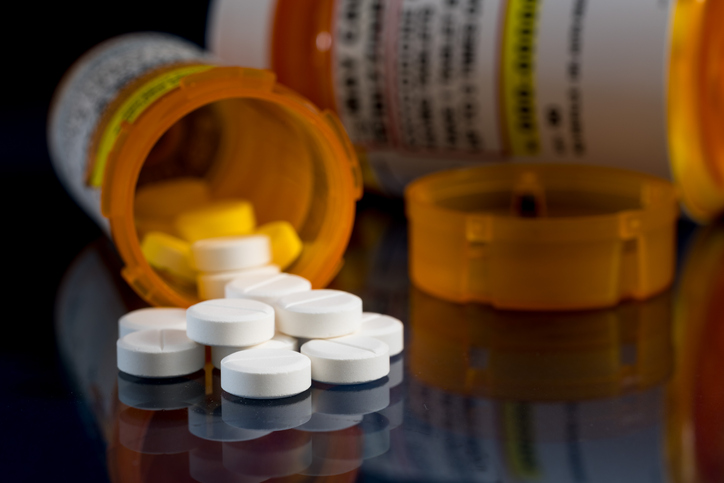The Federal Trade Commission (FTC) and federal prosecutors are investigating a telehealth company accused of over-prescribing controlled substances, The Wall Street Journal (WSJ) reported most recently on June 14.
The FTC is investigating the business practices of Cerebral Inc. after numerous patients complained they were not able to cancel monthly subscription fees and prescription refills.
Pharmacies, including Walmart, CVS, and Cerebral’s preferred pharmacy partner, Truepill Inc., refused to fill orders after they detected a pattern of over-prescribing controlled substances, such as Adderall, that contain amphetamines, the WSJ reported. The company’s nurse practitioners claim they felt pressured to prescribe stimulants such as Adderall and Vyvanse to treat attention-deficit hyperactivity disorder (ADHD) and other problems.
“The FTC’s Civil Investigative Demand follows a subpoena the company said its medical group received in early May from federal prosecutors as part of an investigation into possible violations of the Controlled Substances Act,” stated the WSJ.
Virtual Mental Health, Drugs
Cerebral Inc. is a start-up firm offering online mental health services, including virtual diagnoses and prescriptions for drugs to treat depression, anxiety, and ADHD.
Cerebral co-founder and Chief Executive Officer Kyle Robertson told the staff the company would no longer prescribe Adderall for new patients, in an email in May. However, Chief Medical Officer David Mou stated the company will continue to prescribe controlled substances for other conditions, including benzodiazepines to treat anxiety, and will also continue to treat existing ADHD patients with stimulant medications, in a separate email to clinicians.
Cerebral’s board of directors fired Robertson and replaced him with Mou, the WSJ reports.
“Cerebral vaulted to a $4.8 billion valuation less than two years after it launched its services,” states the WSJ. “It grew quickly advertising online mental-health treatment, first for depression and anxiety and later for attention-deficit hyperactivity disorder.”
‘Study Skittles, to Friends’
Telehealth providers face growing scrutiny over the liberal prescription of controlled substances such as Adderall, which is classified as a Schedule II controlled substance by the federal government due to its high potential for abuse, according to the WSJ.
Although telehealth was beneficial for patients during the COVID-19 crisis, greater oversight of the industry is needed, says Matt Dean, a senior fellow for health care policy outreach for The Heartland Institute, which co-publishes Health Care News.
“Telehealth has performed extremely well throughout the pandemic and has helped meet the mental health crisis created in part by the pandemic itself,” said Dean. “However, in-person mental health care cannot be entirely replaced. The risk of substance abuse, accidental overdose, and suicide cannot be appropriately dealt with through a telephone-only care system.”
Pharmacological interventions for mental health present a particular challenge says Dean.
“A patient who has become dependent on Adderall or Vyvanse may have been told by his doctor that he needs to wean off the drug, said Dean. “That patient may be able to immediately get a prescription from Cerebral because there is no doctor to see. Instead, he will merely complete a quick telephone consultation to get a new bottle delivered in a discrete package that looks more like cosmetics than pharmacology.”
Some teenagers and young adults obtain prescriptions in order to illegally sell their medications, says Dean.
“Without eyeballing a patient, it is sometimes difficult to tell if he may be concealing dependency, or if he may be reselling Adderall—aka Study Skittles—to friends on campus for $10 a piece,” said Dean.
‘Needed Expansion of Care’
Telehealth doesn’t require more regulation than any physician’s physical practice, says Charlie Katebi, a health policy analyst at Americans for Prosperity.
“We see the same risks in telehealth as in-person prescribing in terms of discretion and discipline,” said Katebi. “The earlier opioid crisis was, after all, driven by in-person visits. Telehealth represents a needed expansion of care services, but we need to assure that the same safeguards that exist for in-person visits remain in place for telehealth.”
Druggists are an important part of managing health care, says Katebi.
“Given that, in this case, the over-prescription of Adderall was noted and acted upon by pharmacies filling the prescriptions, pharmacy oversight may be key, although the level of discretion they exercise may be open to further discussion,” said Katebi. “In the end, pursuing greater enforcement in the process of providing greater access is the goal.”
‘Attempt to Control Abuse’
The health care system has multiple gatekeepers exist to control health care costs and prevent harm to patients, says Dean.
“Barriers in medicine are necessary,” said Dean. “Patients want access to things that make them feel better. But unrestricted access to Schedule I narcotics like heroin, for example, creates social problems that are not easily fixed. So, then we create a criminal, legal barrier.”
The drug-control system worked when pharmacists recognized Cerebral’s predilection to prescribe controlled substances, says Dean.
“The law places licensed prescribers between patients and medications to make sure that the drug is safe, efficacious, and necessary,” said Dean.
Controls on prescription drugs help reduce costs and monitor for potential abuse, says Dean.
“Insurers sometimes place another gatekeeper between you and a medication that your doctor prescribes, requiring prior authorization before you get an expensive drug,” said Dean. “Sometimes, a patient must meet face to face with a prescriber before receiving a drug or try a less expensive one before a more expensive one. These barriers attempt to control abuse of addictive drugs and slow the flow of very expensive medications, particularly when a low-cost generic drug may be just as effective.”
Kevin Stone (kevin.s.stone@gmail.com) writes from Arlington, Texas.
For more great content from Health Care News.
